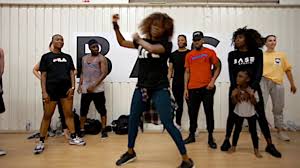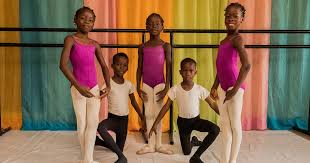![]()
If you’ve landed on this article page, you’re probably searching for a
good business idea—an idea that’s light on the pocket but heavy on
returns, promising both a fulfilling journey and potential profit.
|
How to become a successful Choreographer
Choreography, also known as “dance writing,” is the art and
technique of designing specific steps, movements, and dance
sequences for performances and shows.
Choreographers devise dance routines for film, TV, and
commercial productions. They also teach the moves to Dancers and
Actors on set.
It’s not necessarily a job requirement for a Choreographer to be
a Dancer, but yes, they generally are. On account of knowing
firsthand what it takes to move both technically and
artistically through dance, a Dancer can often find success as a
Choreographer. And because the career span of a Dancer is
relatively short, they frequently transition to becoming a
Choreographer once they can no longer professionally thrive
strictly as a Dancer.
A choreographer works with the creative team and guides dancers.
Choreographers may work solo to create a routine based on their
artistic vision, or they might be hired early in the creative
process to help bring a director’s or production team’s vision
to life. On any given day, they might:
Build dance experience
While education provides the theoretical foundation needed to
work as a choreographer, experience with dance is essential. A
professional choreographer needs years of dance training under
their belt both as a dancer and as a dance designer. They may
take dance classes and then test their training by attending
performances, expos, and auditions for dance companies and
productions. Upon developing a strong foundation as a dancer,
they may apply to earn their certification to teach at a dance
studio or work under another choreographer. These roles entail
collaboration on beginner routines and introductory classes and
provide valuable mentorship. From there, they work their way up
to associate choreographer or dance director, and finally to
full choreographer.
Performers could always use encouragement. Choreographers should
be supportive and positive during the rehearsal process.
Performing well often happens with positive reinforcement and
good vibes, so it’s vital that the choreographer create an
environment that fosters that.
No matter how advanced choreographers may be, there’s always
more to do and learn. There are so many styles and genres of
dance, it would behoove a choreographer to familiarize
themselves with as many as possible. Learning even the basics of
a varied range could prove very useful.
Profitability: The average Choreographer earns approximately
N1M to N15M per Movie. Pay may vary further depending on
location, performance size and scope, and experience.
The following skills are needed to become a choreographer:
Dance technique: Knowledge of different types of dance
techniques as well as dance concepts such as rhythm, emotion,
and musicality allow choreographers to direct their dancers
toward the best performances.
Choreographic conceptualizing: Choreographers visualize the
movements, gestures, and formations that allow music to become
narrative through dance. They must be able to conceptualize
dance in sections, design routines within these sections, and
then refine until the choreography presents a polished, cohesive
story.
Choreographic writing: Writing choreography includes the ability
to record stage directions, describe dance formations, and make
notes about movements, steps, counts, and lyrics.
Agility: Fitness and agility are not only beneficial but also
necessary to help lead dancers through movements.
Leadership: As the head of the dance team, choreographers must
have strong leadership skills, including the ability to inspire
collaboration and communication.
Passion: A keen interest in the art of dancing and the science
of movement encourages better performances—and helps keep the
job interesting.
|







